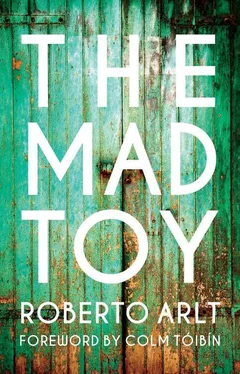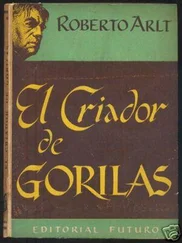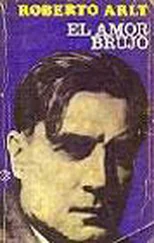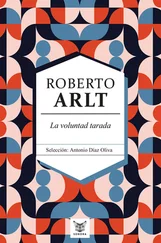‘Yes it is. What do you know about explosives?’
‘Ask me anything,’ I replied with a smile.
‘Okay, well then, what are fulminates?’
This was beginning to look like an exam, and I replied with an air of wisdom:
‘Captain Cundill, in his Dictionary of Explosives , says that fulminates are the metallic salts of a hypothetical acid called hydrogen fulminate. They can be simple or double.’
‘All right, all right, give me an example of a double fulminate.’
‘Copper fulminate, which forms as green crystals produced when mercury fulminate, a simple fulminate, is boiled with water and copper.’
‘He knows a lot, this kid. How old are you?’
‘Sixteen, sir.’
‘Sixteen?’
‘Are you listening to this, captain? This kid’s got a great future ahead of him. How about we talk to Captain Márquez? It’d be a shame if we couldn’t accept him.’
‘It would indeed.’ The officer from the engineer corps turned to me.
‘Where the devil have you studied all of this?’
‘All over, sir. I don’t know, I go out into the street and I see a machine I don’t know anything about in a workshop somewhere. I stop, and say to myself as I look at the different parts that this bit must work like this , and this bit must do that . And after I’ve made my deductions I go into the shop and ask, and believe me, I’m very rarely wrong. Also, I’ve got a pretty good library, and if I’m not studying mechanics then I study literature.’
‘What?’ The captain interrupted. ‘Literature as well?’
‘Yes, sir, and I’ve got the best authors: Baudelaire, Dostoevsky, Baroja.’
‘ Che , he’s not an anarchist, is he?’
‘No, sir. I am not an anarchist. But I like to study and to read.’
‘And what does your father think about all of this?’
‘My father killed himself when I was very young.’
They fell suddenly quiet. The three officers looked at me and at each other.
The wind outside whistled, and my brow furrowed even more.
The captain stood up and so did I.
‘Look, buddy, congratulations, come by tomorrow. I’ll try to speak to Captain Márquez tonight, because you deserve a shot. This is what the Argentinian army needs. Kids who want to study.’
‘Thank you, sir.’
‘Tomorrow, if you want to come by, I’ll be happy to see you. Ask for Captain Bossi.’
Heavy with so much happiness, I took my leave.
Now I walked through the shadows, leapt over the fences, with a resonant feeling of courage within me.
Now more than ever I felt that I was to use my existence to fulfil some grand destiny. I could be an engineer like Edison, a general like Napoleon, a poet like Baudelaire, a demon like Rocambole.
I was in the seventh heaven. Because I had won the praise of grown men, I spent nights so overcome with joy that my blood beat against my heart for happiness, and I thought that I was being carried across the world on the shoulders of my happiness, like a symbol of youth.
I think they chose thirty apprentices to study aviation mechanics out of two hundred applicants.
It was a grey morning. The rough field stretched out into the distance. A nameless punishment oozed from its grey-green monotony.
We passed by the closed hangars accompanied by a sergeant, and got into our overalls in the barracks.
It was drizzling, but despite the drizzle we were taken to do exercises on a patch of scrubland behind the canteen.
It wasn’t difficult. As I obeyed the commands given by the voice I allowed the indifferent expanse of the plain to enter into me. This hypnotised my body, letting all the difficult work happen independent of me.
I thought:
‘If she could see me now, what would she think?’
Sweetly, like a shadow on a moonlit wall, I went back over everything to do with her, and in a distant dusk I saw the imploring image of the girl, motionless next to the poplar tree.
‘Let’s see some movement, recruit,’ the corporal shouted at me.
When it was time to eat, splashing through the mud, we went up to the stinking mess-pots. Green firewood was smoking under the pots. We stood close together and held out our tin plates to the cook.
The man dipped his ladle into the swill and stuck a fork into the other pot, then we stood to one side to gobble down our food.
While I ate I remembered Don Gaetano and the cruel woman. And although they did not exist, I perceived huge expanses of time between my silent yesterday and my quavering present.
I thought:
‘Now that everything has changed, who am I in this too-large uniform?’
Sitting next to the barracks, I saw the rain falling sporadically, and with the plate on my knees I couldn’t take my eyes off the horizon, which appeared to be broken in places, but which was smooth as a band of metal in others and which was so pitilessly excited that its cool height where it fell away cut through to my bones.
Some of the apprentices sitting on the stairs laughed, and others, bent over a water-trough, were washing their feet.
I said to myself:
‘Life’s like this, always complaining about what has happened. The threads of water fall so slowly.’ That was how life was. I left the plate on the ground in order to allow my thoughts free rein.
Would I ever escape from my terrible social condition, would I ever be able to become a gentleman, to stop being someone who went for any job going?
A lieutenant came past and I stood to attention… Then I fell into a corner and the food I had eaten made me feel even heavier.
In the future, would I be one of those men with dirty collars and darned shirts, with a reddish suit and gigantic shoes, with blisters and calluses on my feet from walking so much, from going door to door asking for work?
My soul trembled, what should I do, what could I do to succeed, to earn money, a lot of money? I wasn’t going to find a wallet with ten thousand pesos in it in the street. What to do then? And I didn’t know if I could kill anyone, I wished I at least had a rich relative to kill and inherit from, but I understood that I would never become resigned to the penurious life that the majority of men put up with naturally.
Suddenly it became so clear to me, to my conscience, that this desire for distinction would accompany me throughout the world, that I said to myself:
‘I won’t care if I never have a suit, never have any money, never have anything,’ I confessed to myself almost shamefully. ‘What I want is to be admired by others, praised by others. What do I care if I’m a rake? I don’t care at all… But this mediocre life… To be forgotten when you die, that’s horrible. Oh, if my inventions could only have some success! But I will die one day, and the trains will keep on running, and people will go to the theatre like they always did, and I’ll be dead, good and dead… dead for life.’
A shudder made the hair on my arms rise up. Faced by a horizon on which the clouds moved like ships, the conviction of an eternal death filled me with horror. Overwhelmed, holding my plate, I went to the trough.
Oh, if only I could find a way never to die, to live even for only five hundred years!
The corporal who was putting us through our paces called me over:
‘Drodman, Captain Márquez wants to see you.’
‘Right away, Corporal.’
During the exercises I had asked permission via a sergeant to speak with Captain Márquez, to ask him about a trench mortar that I had thought up, which would shoot projectiles that would destroy more men than traditional explosive shrapnel.
Aware of my vocation, Captain Márquez was used to hearing me out, and while I spoke and drew on his blackboard he would look at me through his glasses with a smile that was part curiosity, part mockery and part indulgence.
Читать дальше












